What are the Seven Summits? A List in the Order of Height, Cost, Difficulty etc
I’ve now climbed all 7 summits! As well as a few other disputed mountains. Looking back at this blog post makes me so happy! Anyway, so what are the 7 summits? The seven summits are the 7 highest mountains on each continent Climbing the seven summits first became a ‘thing’ when Richard Bass, in 1985, summited all 7. He, however, used the wrong mountain for the Australian continent.
So the first true seven summits were completed by Patrick Morrow in 1986. More on that discrepancy at the bottom.
What are the 7 continents, and their highest peaks?:
- Africa; Kilimanjaro
- Europe; Mount Elbrus, often wrongly considered Mont Blanc.
- North America; Denali
- South America; Aconcagua
- Asia; Mount Everest
- Australia (often referred to as Australasia); Puncak Jaya, often wrongly considered Mount Kosciusko.
- Antarctica; Mount Vinson
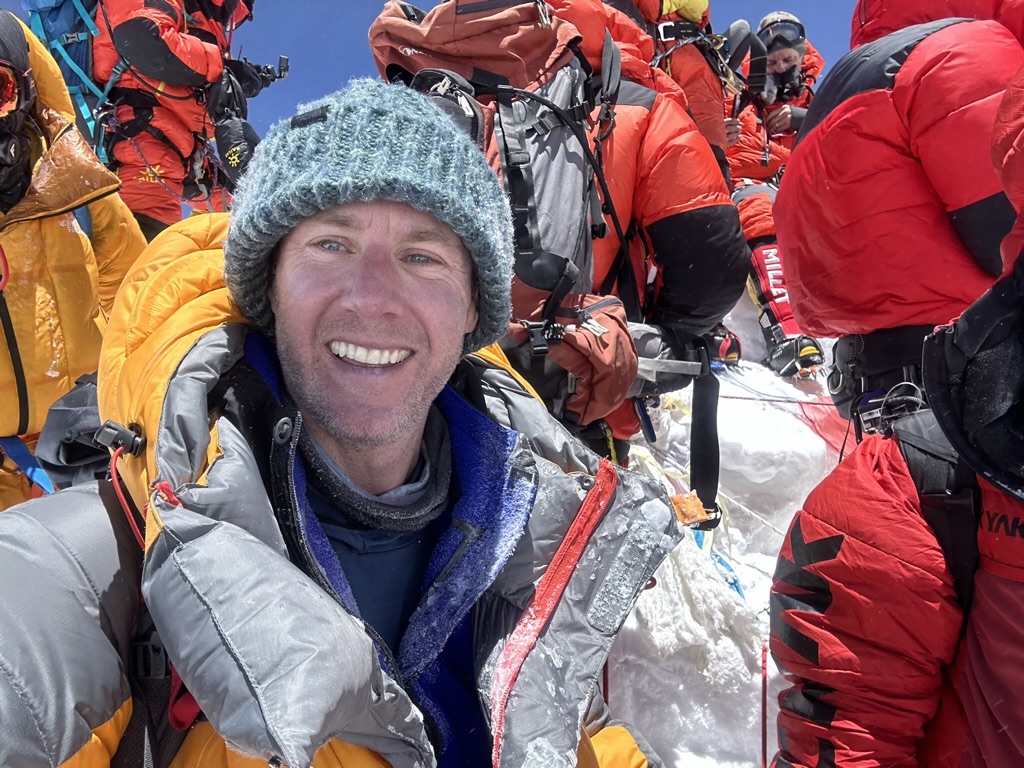
My Personal Quest to Summit the 7 Summits
It’s a huge dream of lots of climbers, adventurers, and explorers to summit the highest point on each continent in their lifetime. I’ve managed 6 of the 7 Summits (the easiest ones of course – Kilimanjaro, Tanzania and Elbrus, Russia), as well as the 2 dubious one of Mont Blanc and Mount Kosciuszko and now also Aconcagua.
Less than 750 people in history have completed the 7 summits, and only 20 to have done the 7 summits + North Pole & South Pole – known as the adventurers gland slam (and no one in history for that + every country in the world – my new goal!) yet for some strange reason these 7 summits are something that I’ve set as my new ridiculous goal, considering I’m barely a trekker, let alone a climber.
But life is short, and the only way to achieve big things is to set big goals, so let’s give it a crack. I’m currently 38 years old (June 2022) and I’m aiming to complete this before I’m 40. But enough about me, let’s have a look at the 7 Summits and what they represent.
EDIT 2023: I am signed up to do my final summit, Mount Vinson, in January 2024. So I’ll miss my goal to finish this before 40 by 3 weeks.
EDIT 2025: DONE!

Table of contents
- What are the Seven Summits? A List in the Order of Height, Cost, Difficulty etc
- My Personal Quest to Summit the 7 Summits
- Asia’s Highest Mountain: Mount Everest, Nepal, 8,848 m (29,029 ft)
- South America’s Highest Mountain: Aconcagua, Argentina, 6,961 m (22,838 ft)
- North America’s Highest Mountain: Denali (Mount McKinley), USA (Alaska), 6,194 m (20,322 ft)
- Africa’s Highest Mountain: Kilimanjaro, Tanzania, 5,895 m (19,341 ft)
- Europe’s Highest Mountain: Elbrus, Russia, 5,642 m (18,510 ft)*
- Antarctica’s Highest Mountain: Vinson, Antarctica, 4,892 m (16,050 ft)
- Australasia’s Highest Mountain*: Puncak Jaya (Carstensz Pyramid), Indonesia (Western Papua), 4,884 m (16,024 ft)
- THOUGHTS ON CLIMBING THE SEVEN SUMMITS:
- How Much Does it Cost to Climb the 7 Summits ?
- What Are Seven Summits: *The Bass and Messner lists, and what about Mont Blanc??
First of all, what are the seven summits, in order of height:
Asia’s Highest Mountain: Mount Everest, Nepal, 8,848 m (29,029 ft)
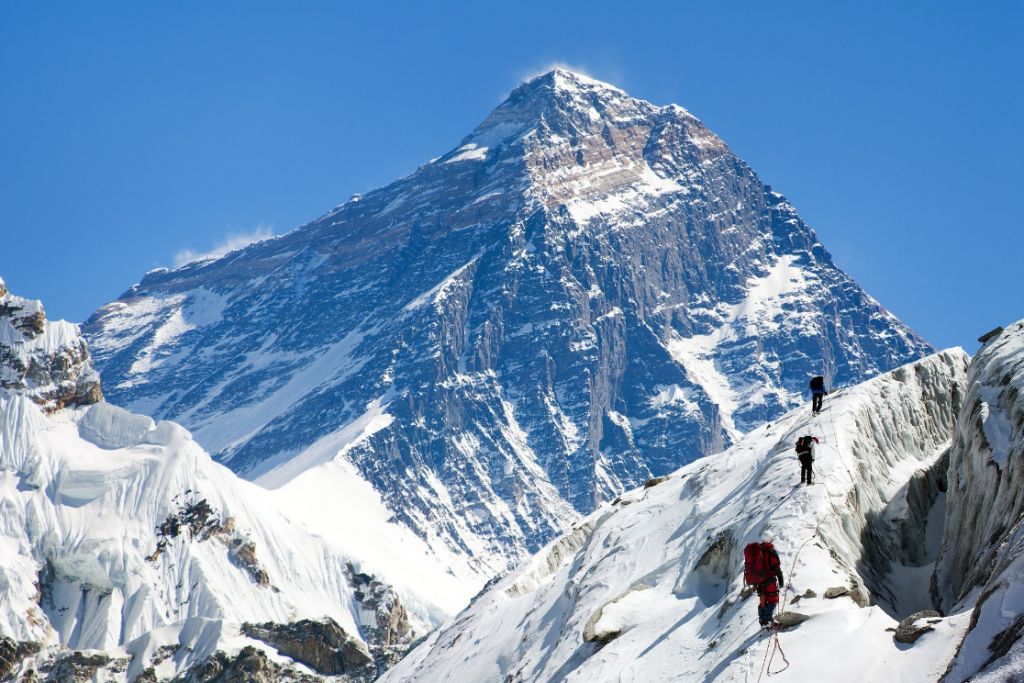
How long does it take to climb Mount Everest?
The short answer is approximately 2 months, maybe a little less, 6-8 weeks. Climbers start arriving at the mountain’s base camps in late March. On the more popular south side, base camp is at around 5,300 metres and sits at the foot of the icefall, the first major obstacle. Clients now acclimatise by climbing nearby, ‘smaller’ peaks. The next major staging post is Camp 2 (Advanced Base Camp), at the mouth of the Western Cwm.
From there you continue to Camp 3 and Camp 4 on the South Col. Sherpas rarely stay at Camp 3, since it is exposed to rockfall. Summit day, usually a date in mid-May when temperatures are warmer and wind milder, actually begins at around midnight. Climbers aim to be on the summit in the morning, with plenty of daylight left to get down before nightfall.
After acclimatisation is complete, the actual summit push from Base Camp and back lasts about a week.
How hard is it?
10/10. Mount Everest death rate is about 1.3% or so, but thankfully dropping every year. It’s both technical and physically grueling, a minimum of 6 months fitness training is recommended.
Climbing Season:
You would start end of March and aim to Summit mid-to-late May
Approximate Cost:
$40,000USD to $85,000 is pretty standard. You can pay up to $100k for extra sherpas, extra tents/space/oxygen etc, but most struggle by on a thrift $50k! The fee to the Nepalese Government is $11k+ alone. Once you pay $50k+ you’ll most likely be with a Western guide along with local Sherpas, less than $50k and it will more likely be a local operation.
Success Rate in 2018:
Mount Everest success rate is roughly 50%
*PERSONAL EDIT. I successully climbed Mount Everest on 17th May, 2023.
South America’s Highest Mountain: Aconcagua, Argentina, 6,961 m (22,838 ft)
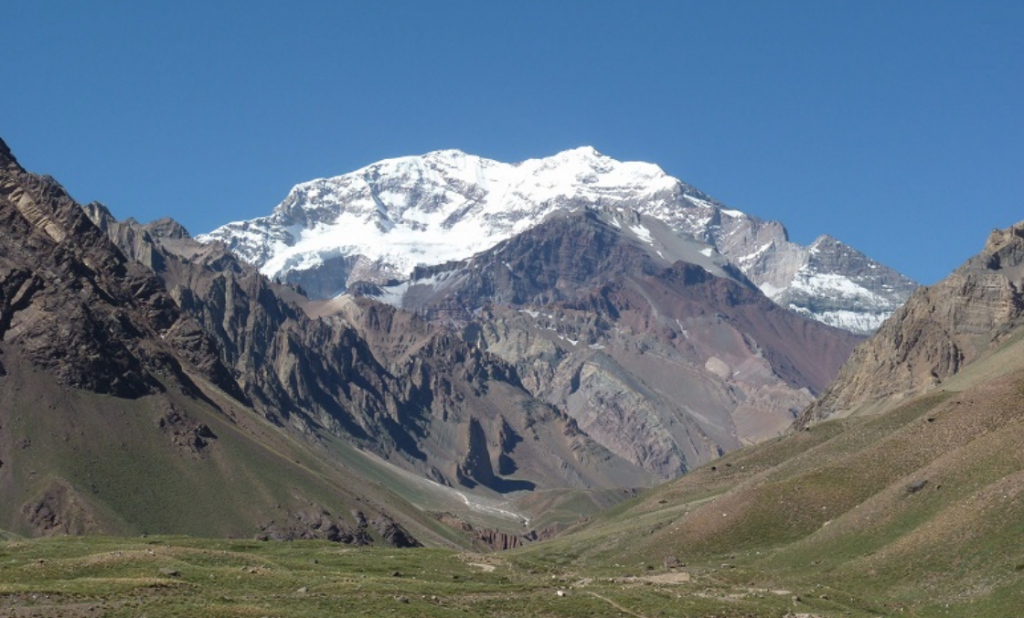
How long does it take to summit Aconcagua?
Climbing Aconcagua takes approximately 3 weeks, a little less if you’re already acclimatised.
How hard is it?
7/10. The second highest summit on the 7 Summits, it’s not technical at all, but the serious altitude and fitness can play a part. Fitness training is required, a minimum of 6 weeks hard training.
Between 2001 and 2012, of the 42,731 mountaineers who sought to reach Aconcagua’s summit, 33 died. This gives a fatality rate of 0.77 per 1,000 or 0.077%.
Climbing Season:
Officially, the climbing season is between November 15th and March 31st of every year. Due to the weather though, it is best to climb Mount Aconcagua between late November and late February.
Approximate Cost:
It ranges from $3,000USD to $6k
Success Rate in 2018:
Around 40% (estimates range from 30% to 50%)
**Personal Edit:
June 2019. Here’s a pic of my FAILED attempt to summit Aconcagua in December 2018. Awful weather, 160kph wind and a very depressed Johnny. You can read about my failure HERE. I’m signed up to try again starting on NYE and throughout January 2020.
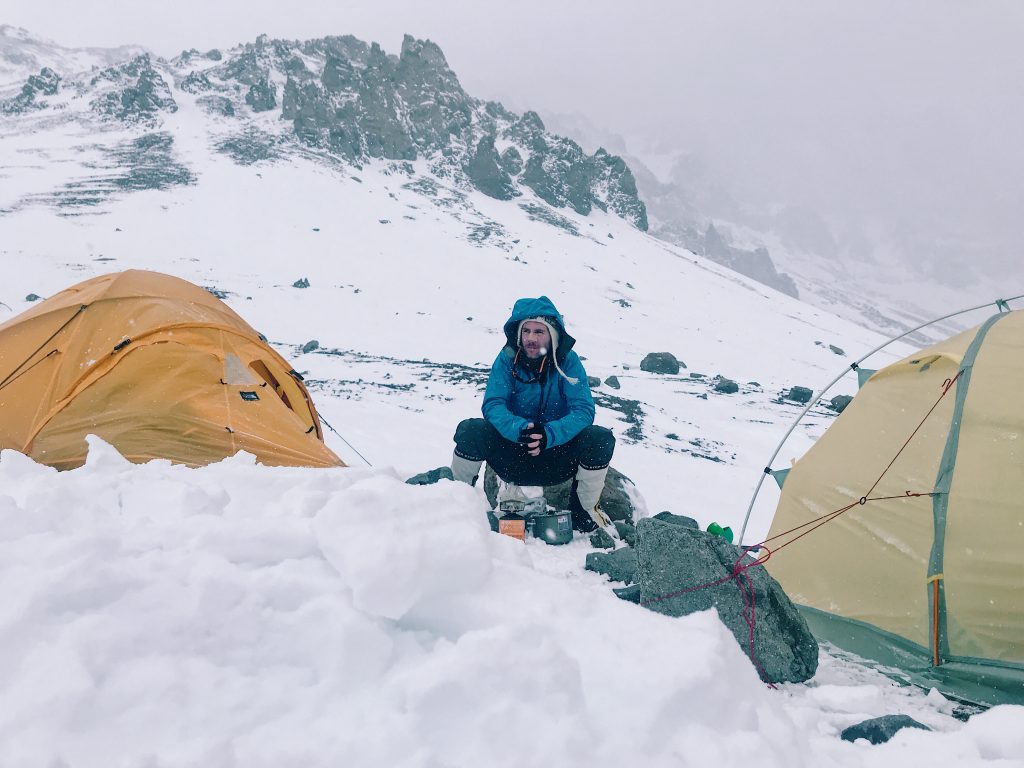
**Personal Edit: I did it (January 2020!)
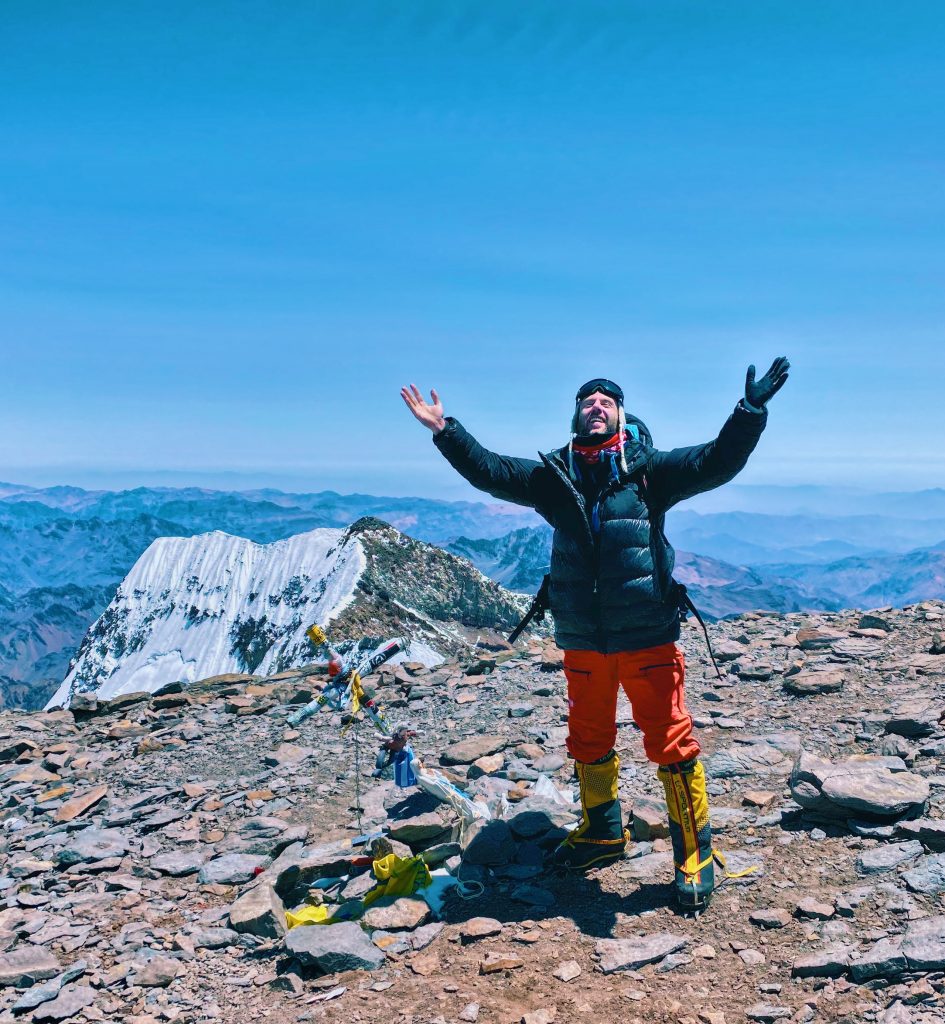
You can read about me trekking Aconcagua to the summit, complete with YouTube video here.
North America’s Highest Mountain: Denali (Mount McKinley), USA (Alaska), 6,194 m (20,322 ft)
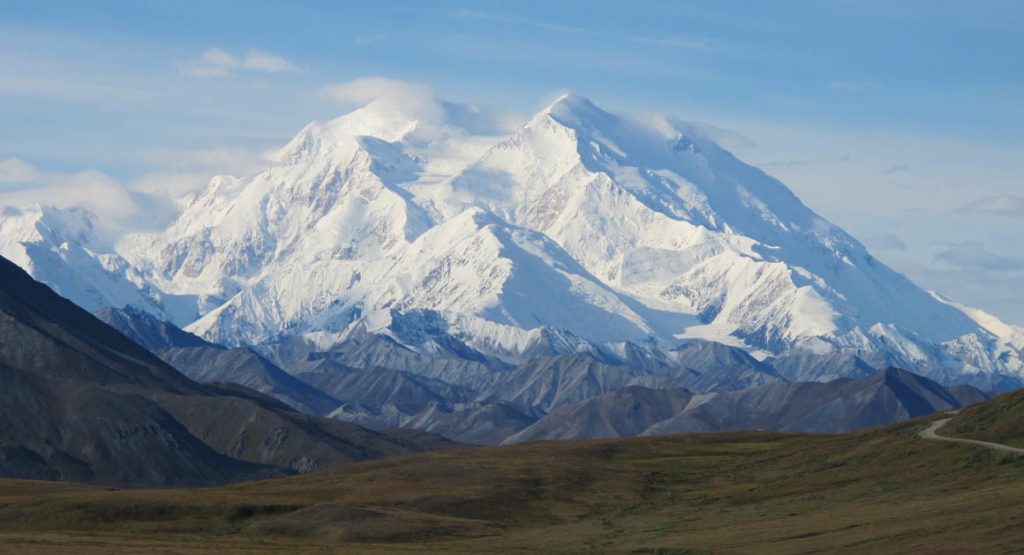
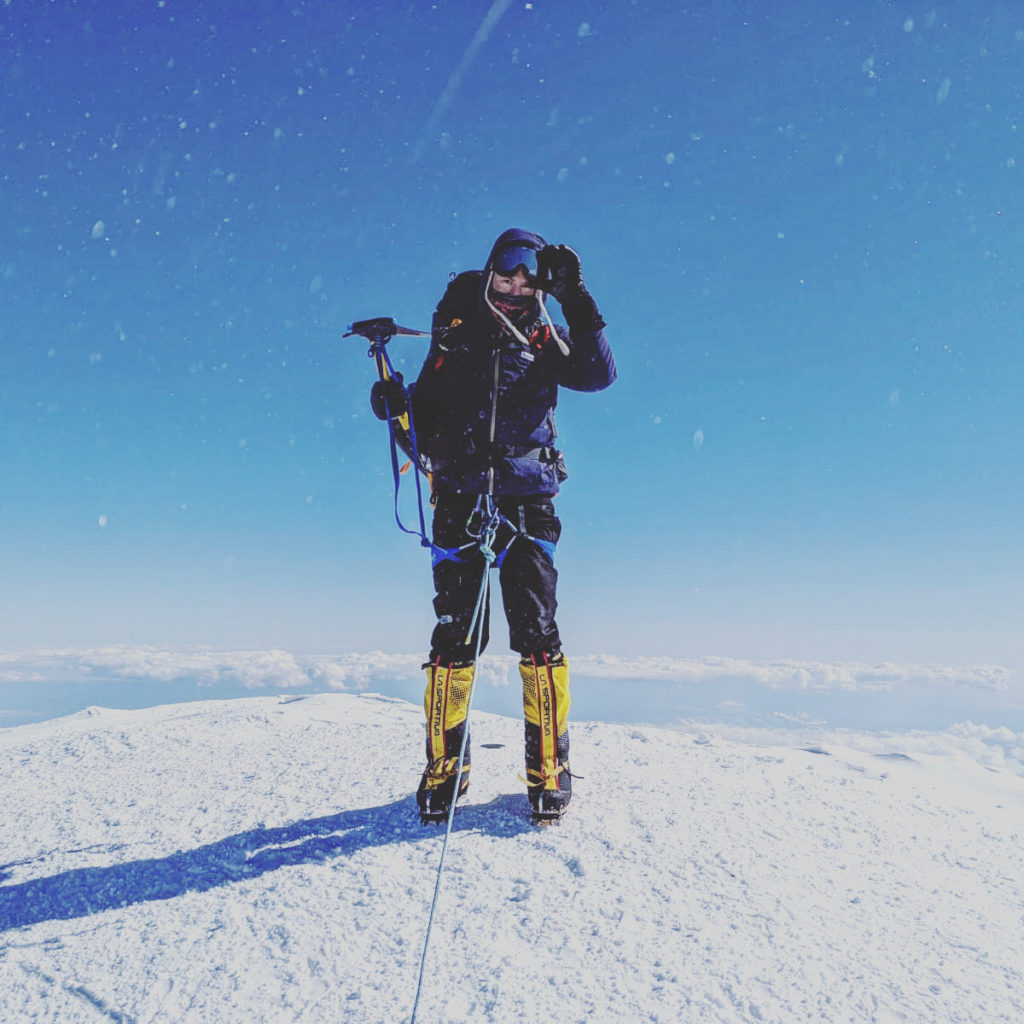
How long does it take to climb Denali?
2/3 weeks, normally around 16 days.
How hard is it to climb Denali?
7/10. It requires some technical climbing, but nothing too heavy, but strong fitness is required.
32,000 people have attempted Denali with a death toll of around 100 (0.003%)
Climbing Season for Denali:
Early May to Late June
Approximate Cost to climb Denali:
$7,000USD to $15k
Mount Denali Success Rate in 2018:
Around 50%
**PERSONAL EDIT:
I summited Denali in June 2022. Lost feeling in the tips of my fingers due to the cold, but other than that, Climbing Denali was just about manageable! Here’s my blog post about it here.
Africa’s Highest Mountain: Kilimanjaro, Tanzania, 5,895 m (19,341 ft)
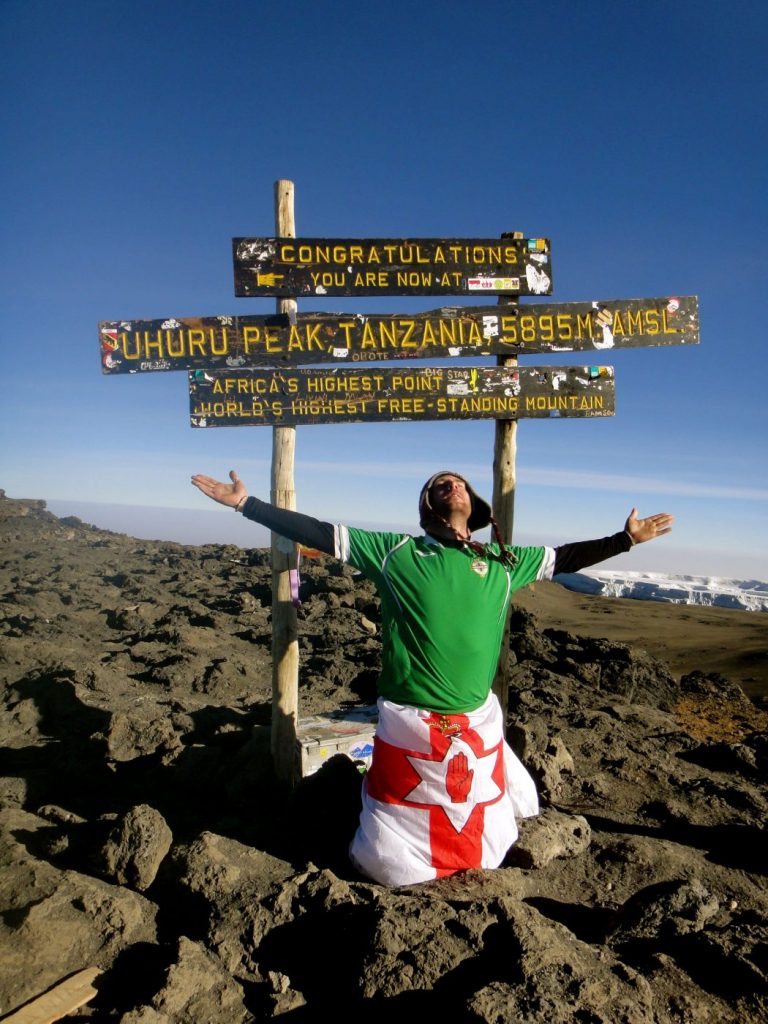
How long does it take to climb Kilimanjaro?
You can race up it in 4/5 days if you’re in a rush, but a standard route is 6 or 7 days on the mountain.
How hard is it to climb Kilimanjaro?
4/10. If you’re a naturally fit person, you should be able to tackle Kili without any prior training. Not technical at all. 30,000 people summit per year, with a death rate of 1 death per 3,333 climbers (0.03%)
Kilimanjaro Climbing Season:
December to February and June to September. Winter season is generally colder than June-Sep and there is a higher probability of encountering snow on the summit
Approximate Cost to climb Kilimanjaro:
Between $1500 to $3k depending on luxury levels
Kilimanjaro Success Rate in 2018:
70%
**Personal edit:
This was the first of the Seven Summits that I climbed, all the way back in 2010, during my Cape Town to Cairo overland trip. You can read about how I did it, and how much it cost here.
Europe’s Highest Mountain: Elbrus, Russia, 5,642 m (18,510 ft)*
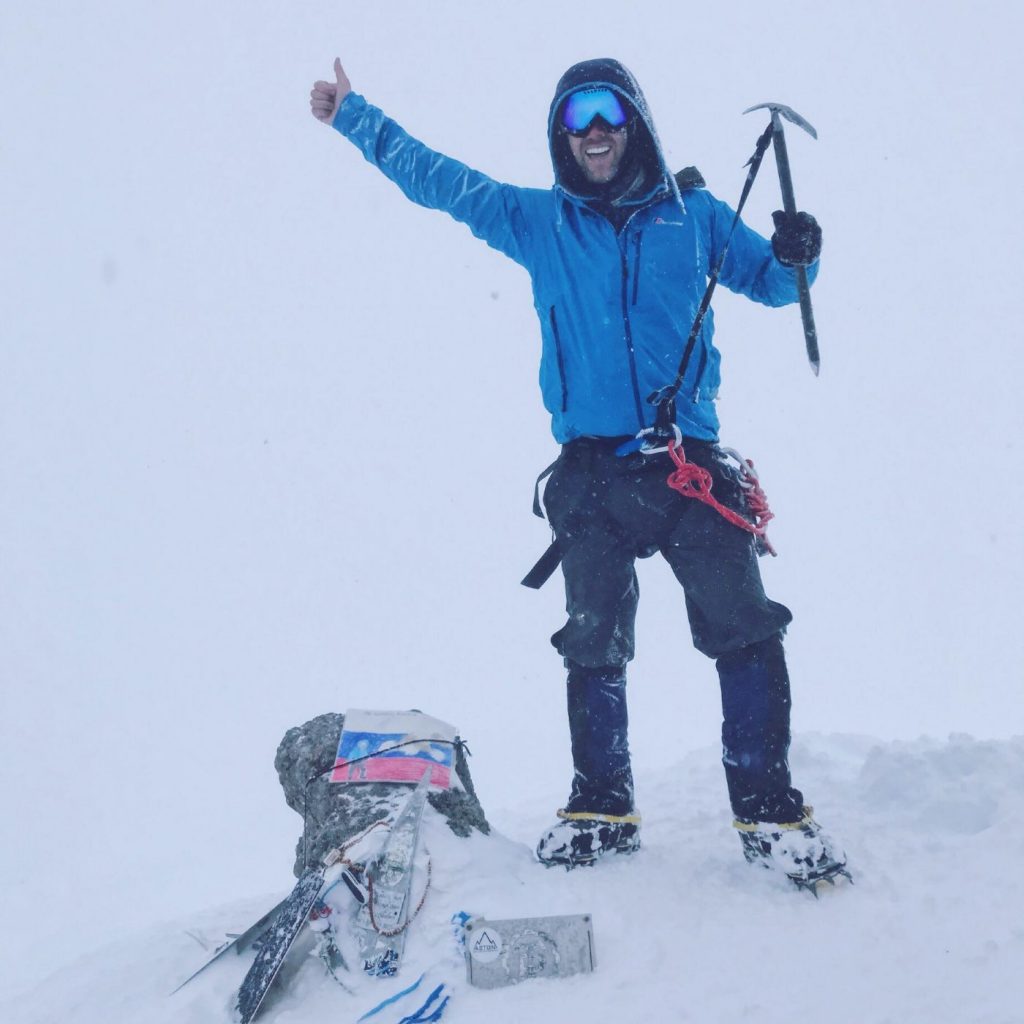
*NOTE: Because the location of the boundary between Asia and Europe is not universally agreed upon Mont Blanc (4,810m) is occasionally considered as Europe’s highest mountain.
How long does it take to climb Mount Elbrus?
Around 5/6 days including base camp, acclimatization, and summiting.
How hard is it to climb Mount Elbrus?
If you use the transport options on the South Side (cable car and snowcat), 6/10, if not or you summit from the north side, 7/10. Not technical at all.
In terms of death rate, about 25 die per year, around 0.15%.
Mount Elbrus Climbing Season:
July and August
Mount Elbrus Approximate Cost:
From $1,100 to $4k
Mount Elbrus Success Rate in 2018:
85% South side (using the snow-cat to carry you to 4,800), 55% North Side.
**Personal Note:
I climbed Mount Elbrus in 2018, I had a great time doing it, highly recommended! Read about it here.
Antarctica’s Highest Mountain: Vinson, Antarctica, 4,892 m (16,050 ft)
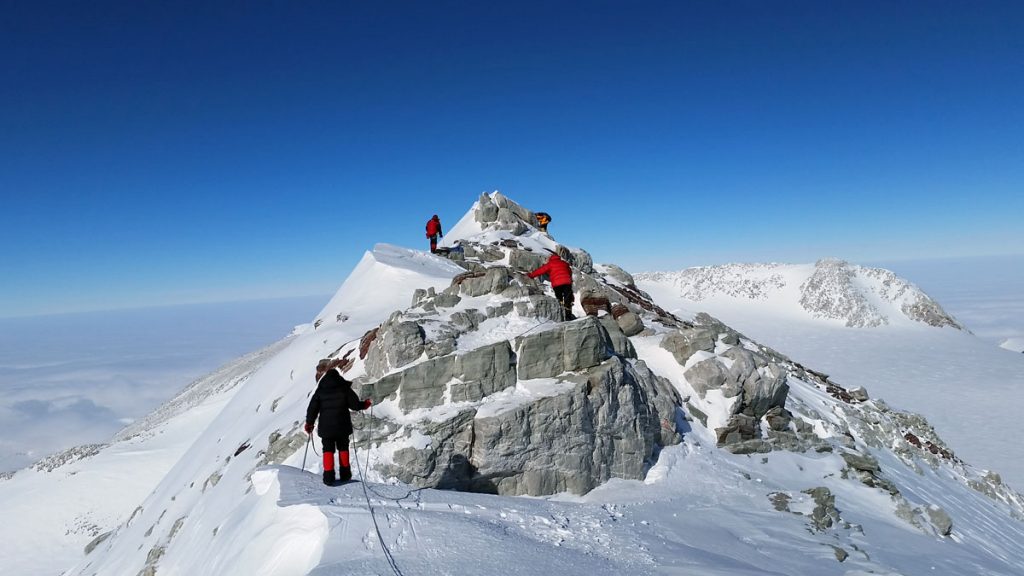
How long does it take to climb Mount Vinson?
Around 15 days from Chile, back to Chile again, and perhaps factor a couple of days delay in with the weather in Antarctica.
How hard is it to climb Mount Vinson?
7/10. Cold, and physically exerting. Train hard for a minimum of 3 months. Technically, thankfully, not too challenging but extremely cold! No one has ever died on Vinson (yaaay, finally!)
Mount Vinson Climbing Season:
Early December to late January
Mount Vinson Approximate Cost:
$40k to $60k including the South Pole
Success Rate in 2018:
95%
** Personal Note:
I plan to combine this with a trip to the South Pole, meaning a cost of $70k+. Ouch! I’m thinking probably winter of 2023 or 2024 for this one.
EDIT 2025: DONE BOTH!
Australasia’s Highest Mountain*: Puncak Jaya (Carstensz Pyramid), Indonesia (Western Papua), 4,884 m (16,024 ft)
*NOTE: Because the location of the boundary between Australia and Asia is not universally agreed upon Mount Kosciuszko (2,228m) is occasionally considered as Australia’s highest mountain. I climbed Mount Kosciuszko in May 2019 just to make sure, you can read about me hiking Mount Kosciuszko here.
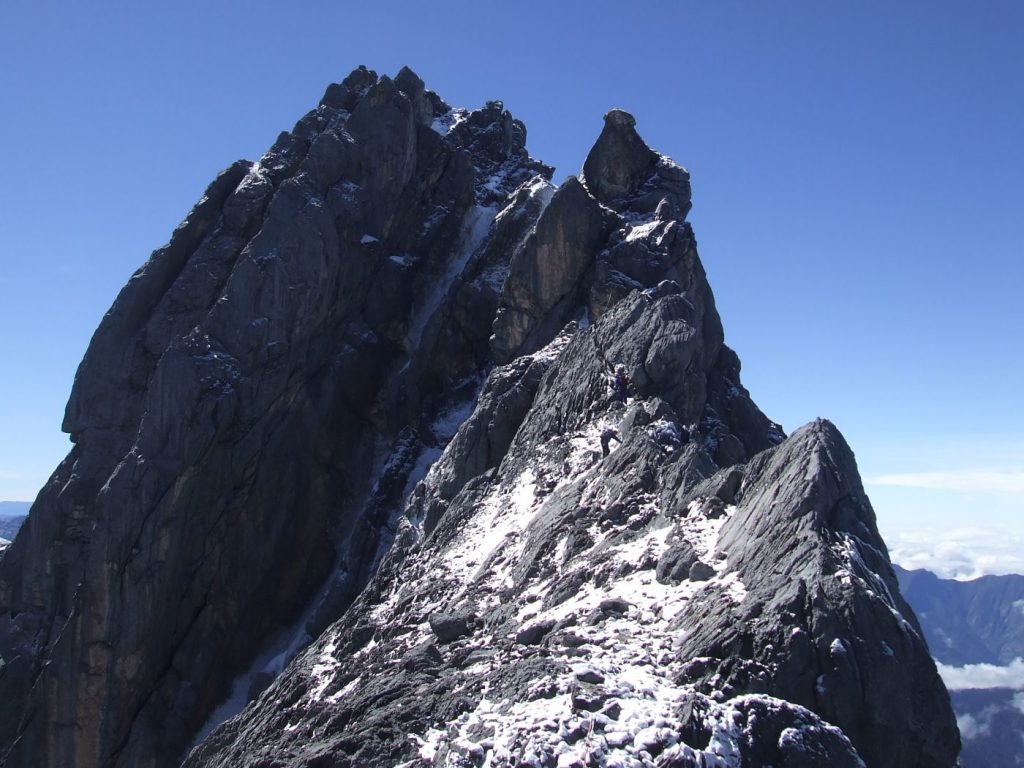
How long does it take to climb Puncak Jaya?
Bali to Bali it takes just shy of 2 weeks
How hard is it to climb Puncak Jaya?
Quite technical (arguably the most technical of the 7 summits) but mostly fixed ropes, it is quite arduous though so being in good shape is required.
Puncak Jaya Climbing Season:
All year-round.
Puncak Jaya Approximate Cost:
$13,000USD to $20k
Puncak Jaya Success Rate in 2018:
95%+
**Personal Note:
I successfully summited Puncak Jaya in June 2019, and I did it for a fraction of the cost ($7,500!). You can read about my experience climbing Puncak Jaya, and how I did it so ‘cheaply’ HERE.
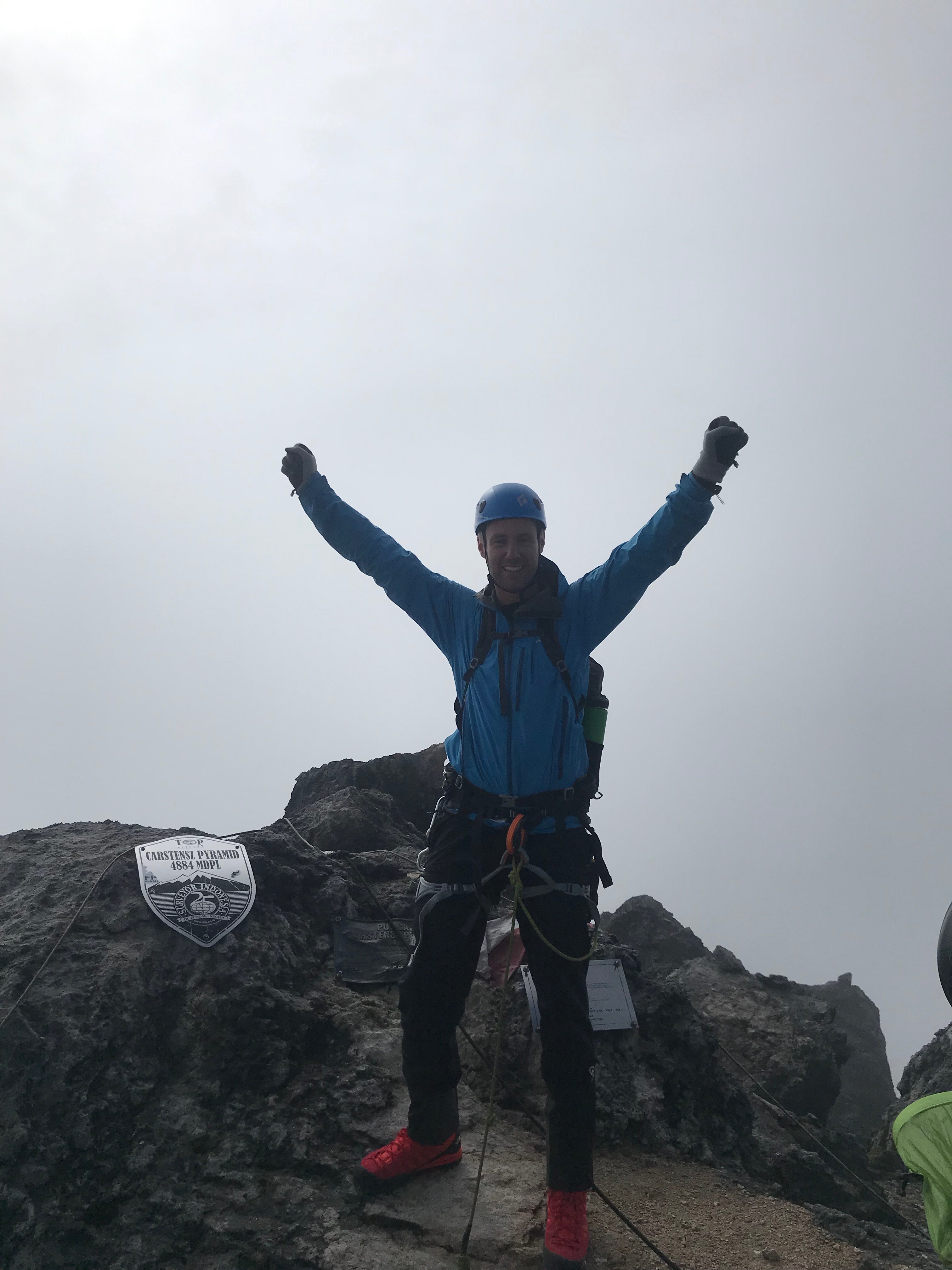
THOUGHTS ON CLIMBING THE SEVEN SUMMITS:
I wrote this summary as much for myself as any of you guys out there. It’s tough to remember the seasons, the exorbitant prices, the chances of succeeding etc, but now I have a place to look back to.
Climbing the 7 summits is a bucket list dream of many adventurers. It’s possible for people to do it even if they’re not ‘mountaineers’ by trade, hence why it’s so appealing. As long as you’re willing to suffer. Suffer 3 ways – in terms of saving the mone to do it, and then the training, and finally the torturous climb themselves.
How Much Does it Cost to Climb the 7 Summits?
I blogged the answer to that IN DEPTH HERE.
The shorter answer: The total cost of the 7 summits? $110,000USD+. That’s a lot of money to save. But big dreams require sacrifice, suffering, and a little ingenuity, so I’ll dig out some sponsors I hope, work hard, save as much as possible and let’s see where we end up.
My plan? Kili, Puncak Jaya, Elbrus, and Aconcagua done. That’s 5/7. Next? Everest (May 2023). Then the big financial efforts of Vinson and Everest to finish. Let’s do it. If any of you guys ever want to join me for these, just let me know and let’s make it happen. Msg me here, or on FB, Twitter or Instagram. Just search for ‘onestep4ward’, see you on the summit.
What Are Seven Summits: *The Bass and Messner lists, and what about Mont Blanc??
The first ‘Seven Summit’ list was created by Bass, where he used Mount Kosciuszko in Australia, instead of Puncak Jaya, in Indonesia. So the Bass Seven Summits list is as follows:
Bass (incorrect) Seven Summits
- Everest
- Denali
- Aconcagua
- Vinson
- Kosciuszko
- Elbrus
- Kilimanjaro
The second, more definitive ‘Seven Summit list, was created by Reinhold Messner who replaced Mount Kosciuszko with Puncak Jaya. Messner’s Seven Summit list is as follows:
Messner’s Seven Summits
- Everest
- Denali
- Aconcagua
- Vinson
- Puncak Jaya
- Elbrus
- Kilimanjaro
Mont Blanc was widely regarded as the highest mountain in Europe in the mid 20th century, only for Elbrus in Russia to be accepted as the true highest point in Europe. That being said, to complete the Seven Summits without argument, one should climb the Seven Summits AND Mount Kosciuszko and Mont Blanc. I did both these mountains in 2019 to make sure!
You can read about my Mont Blanc climb here, and my Mount Kosciuszko climb here.
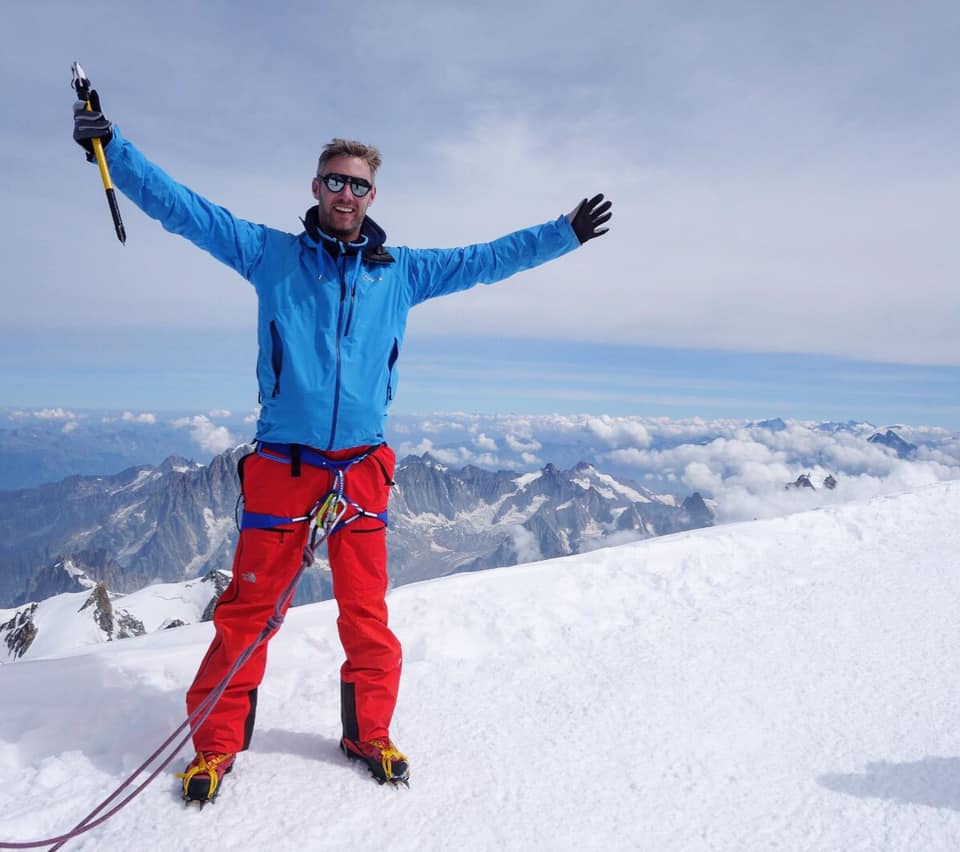
Remember, never travel without travel insurance! And never overpay for travel insurance!
I use HeyMondo. You get INSTANT quotes. Super cheap, they actually pay out, AND they cover almost everywhere, where most insurance companies don't (even places like Central African Republic etc!). You can sign-up here. PS You even get 5% off if you use MY LINK! You can even sign up if you're already overseas and traveling, pretty cool.
Also, if you want to start a blog...I CAN HELP YOU!
Also, if you want to start a blog, and start to change your life, I'd love to help you! Email me on johnny@onestep4ward.com. In the meantime, check out my super easy blog post on how to start a travel blog in under 30 minutes, here! And if you just want to get cracking, use BlueHost at a discount, through me.
Also, (if you're like me, and awful with tech-stuff) email me and my team can get a blog up and running for you, designed and everything, for $699 - email johnny@onestep4ward.com to get started.
Do you work remotely? Are you a digital nomad/blogger etc? You need to be insured too.
I use SafetyWing for my digital nomad insurance. It covers me while I live overseas. It's just $10 a week, and it's amazing! No upfront fees, you just pay week by week, and you can sign up just for a week if you want, then switch it off and on whenever. You can read my review here, and you can sign-up here!





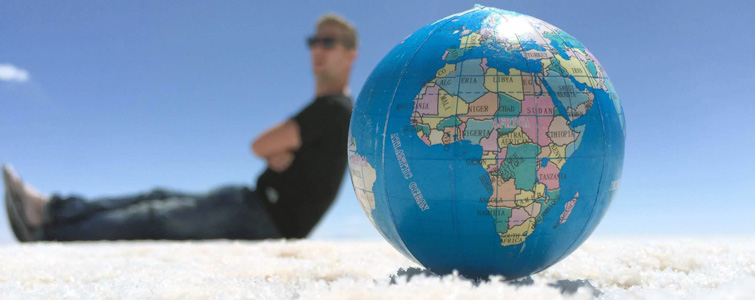


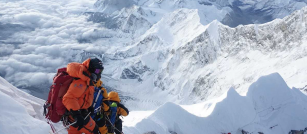

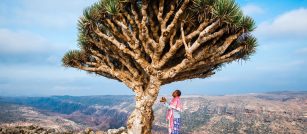


 As you know, blogging changed my life. I left Ireland broke, with no plan, with just a one-way ticket to Thailand
and no money. Since then, I started a blog, then a digital media company, I've made
more than $1,500,000 USD, bought 4 properties and visited (almost) every country in the world. And I did it all from my laptop as I
travel the world and live my dream. I talk about how I did it, and how you can do it too, in my COMPLETELY FREE
Ebook, all 20,000
words or so. Just finish the process by putting in your email below and I'll mail it right out to you immediately. No spam ever too, I promise!
As you know, blogging changed my life. I left Ireland broke, with no plan, with just a one-way ticket to Thailand
and no money. Since then, I started a blog, then a digital media company, I've made
more than $1,500,000 USD, bought 4 properties and visited (almost) every country in the world. And I did it all from my laptop as I
travel the world and live my dream. I talk about how I did it, and how you can do it too, in my COMPLETELY FREE
Ebook, all 20,000
words or so. Just finish the process by putting in your email below and I'll mail it right out to you immediately. No spam ever too, I promise!
